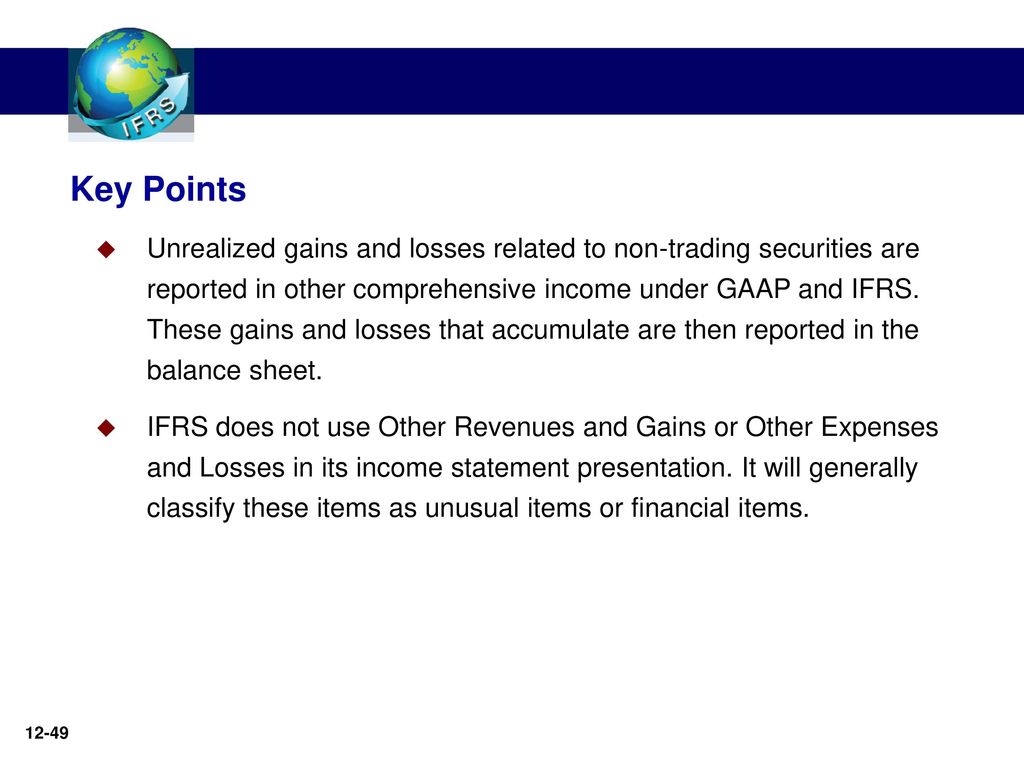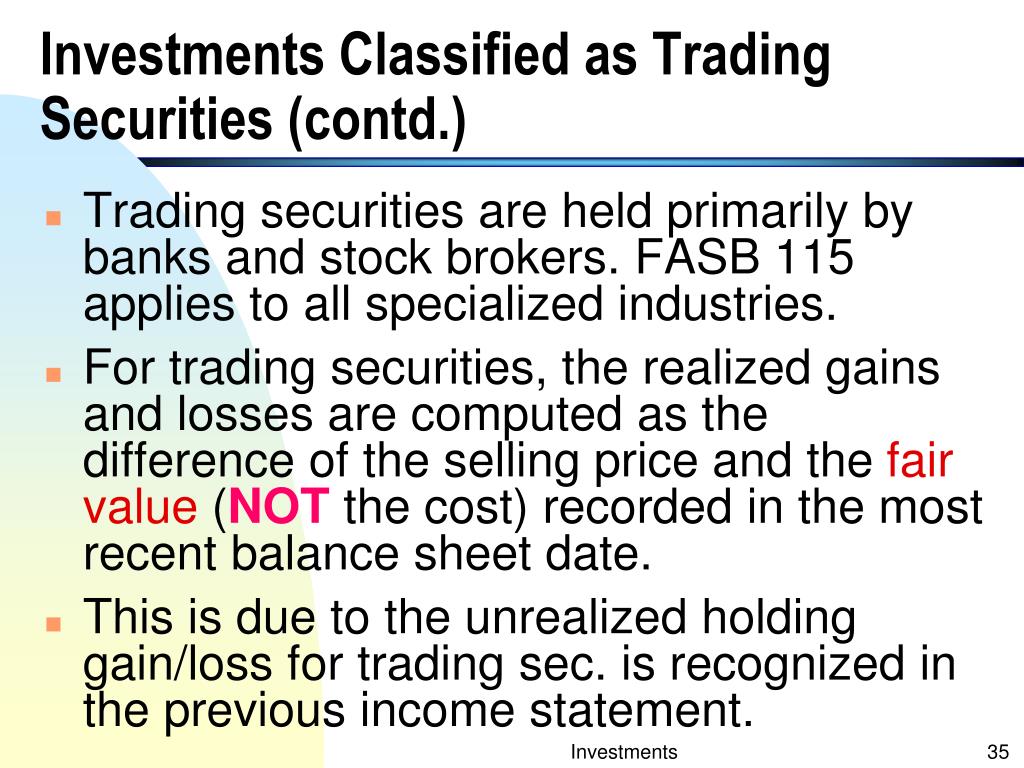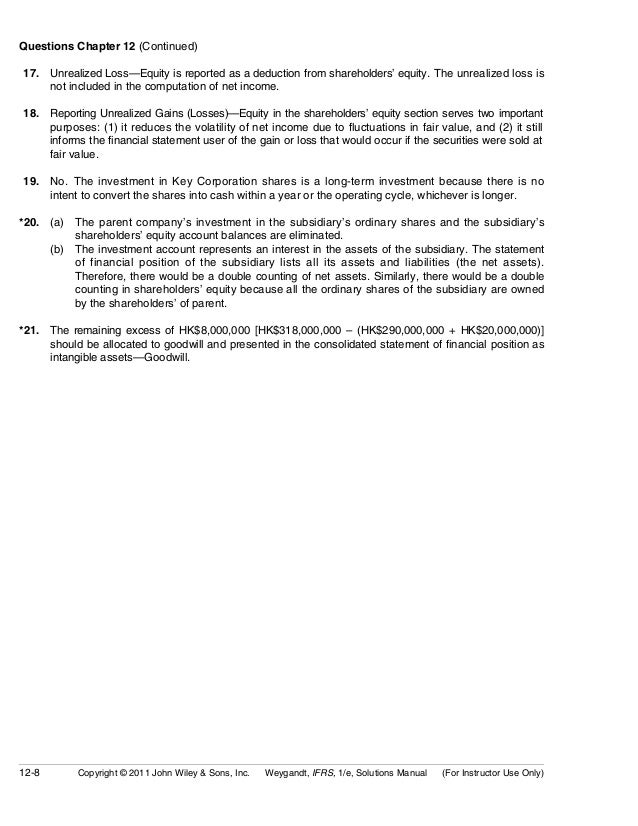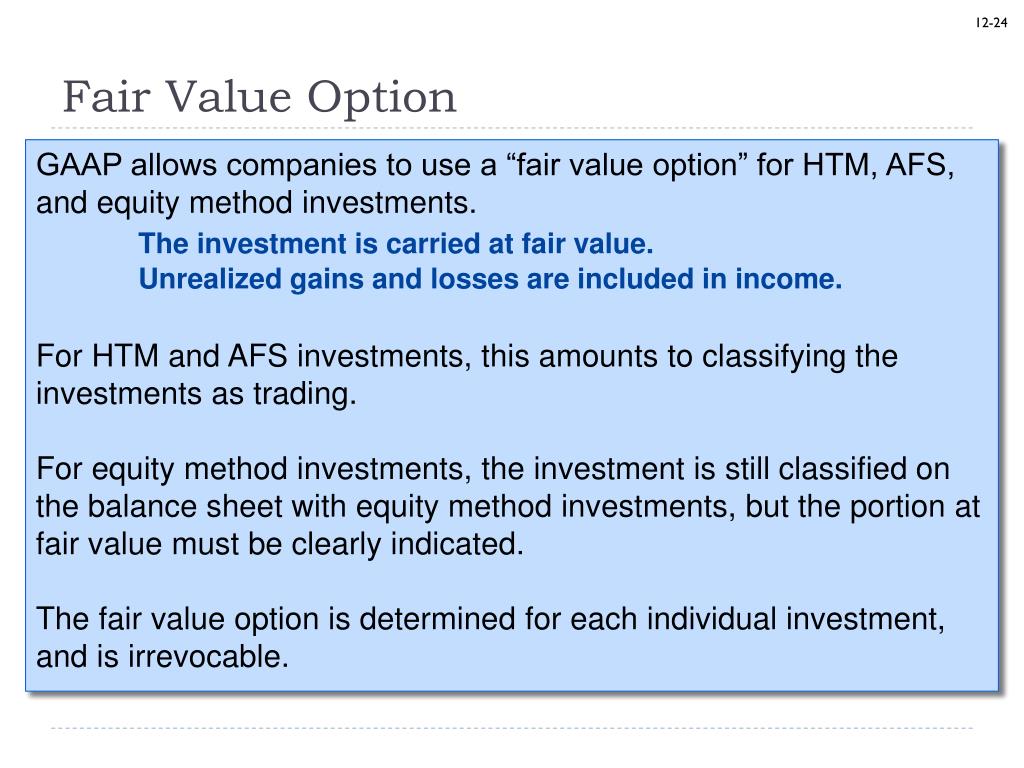Sheet Classification Unrealized Gain
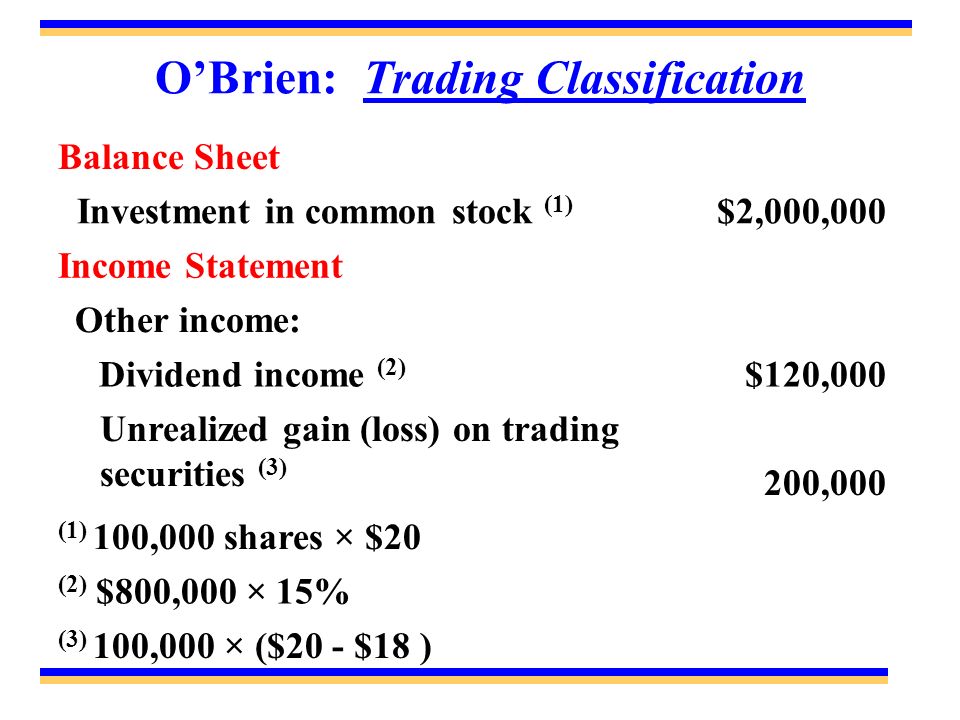
Increasing the asset available for sale securities and.
Sheet classification unrealized gain. An unrealized gain is the potential profit you could realize by cashing in the investment. Under the other assets section of the balance sheet. On paper the company made a paper profit of 5 000. However because you have not cashed in the investment the gain is currently unrealized.
In the balance sheet the market value of short term available for sale securities is classified as short term investments also known as marketable securities and the unrealized gain loss account balance of 15 000 is considered a stockholders equity account and is part of comprehensive income. Each of these categories is treated differently and affects whether gains or losses appear on the balance sheet or income statement. If a company owns an asset and that asset increases in value then it may intuitively seem like the company earned a profit on that asset for example a company owns 10 000 worth of stock then the stock value rises to 15 000. The unrealized gain is however reported on the balance sheet by.
Such a gain is recorded in the balance sheet before the asset has been sold and thus the gains are called unrealized because no cash transaction happened. The entry to record the valuation adjustment is. Where do you post unrealized gains and losses on the balance sheet. Recording unrealized gains and losses is.
An unrealized gain is also referred to as a paper profit because the gain is only theoretical until you sell the investment. An unrealized gain is a profit that exists on paper resulting from an investment. Increasing the stockholders equity component accumulated other comprehensive income. The line item can be referred as unrealized gain loss on the stock portfolio.
For securities except for trading securities the unrealized gains do not impact the net income. It is a profitable position that has yet to be sold in return for cash such as a stock position. The unrealized gains or losses are recorded in the balance sheet under the owner s equity owner s equity owner s equity is defined as the proportion of the total value of a company s assets that can be claimed by the owners sole proprietorship or partnership and by the shareholders if it is a corporation. Realized unrealized examples example 1.



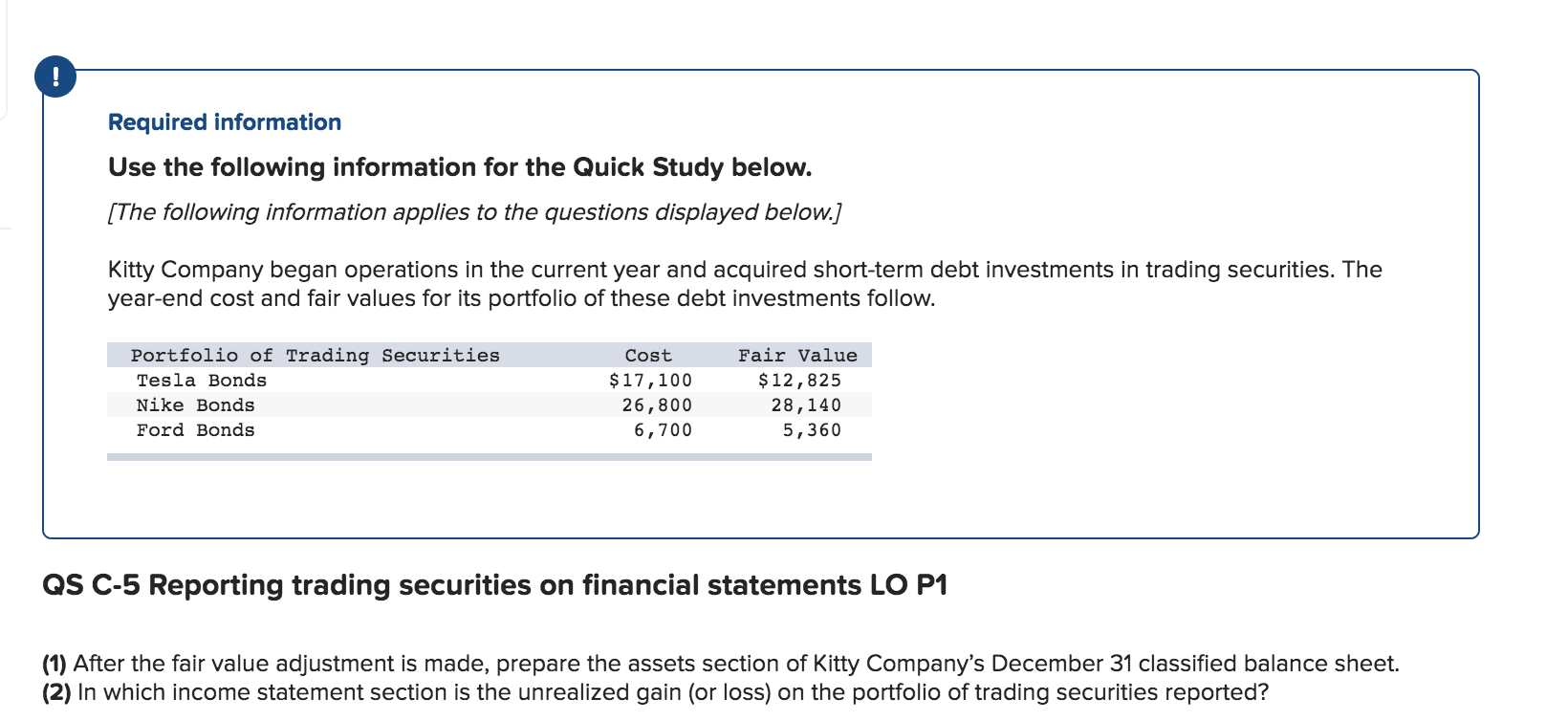












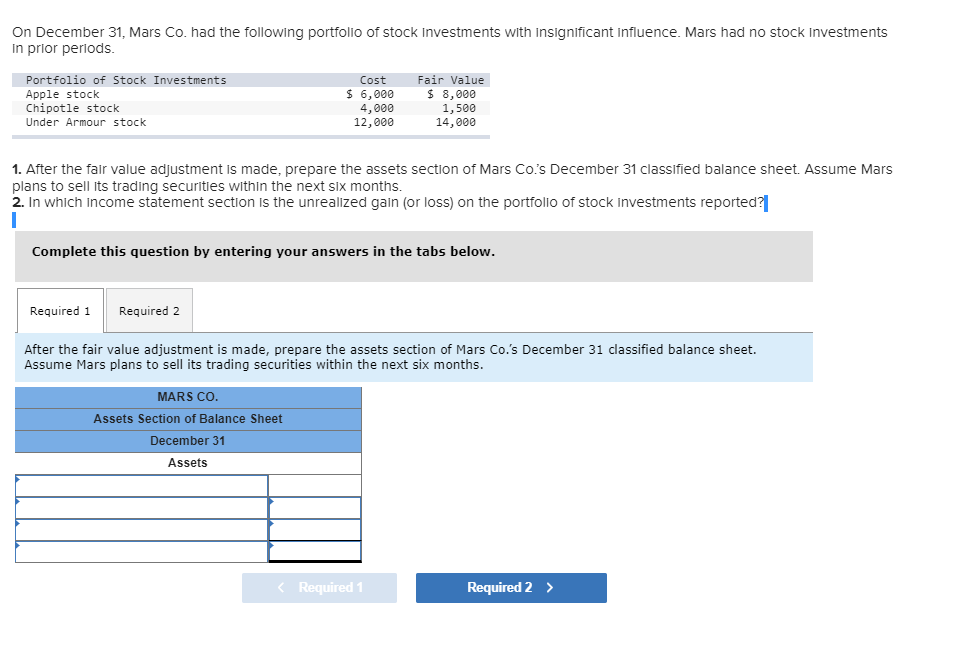


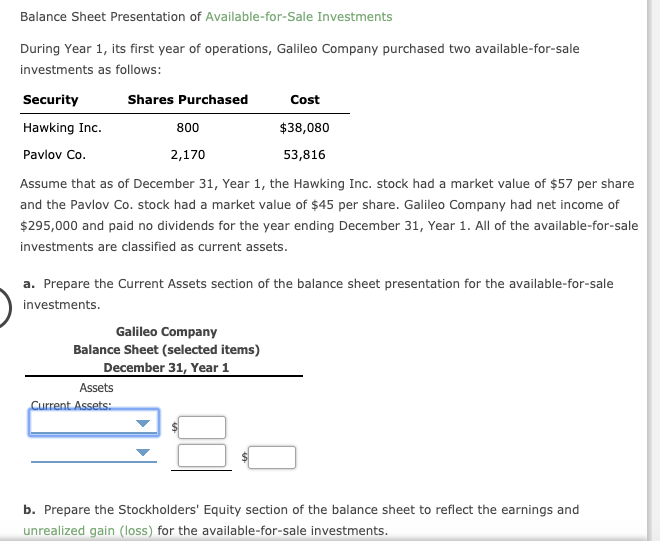

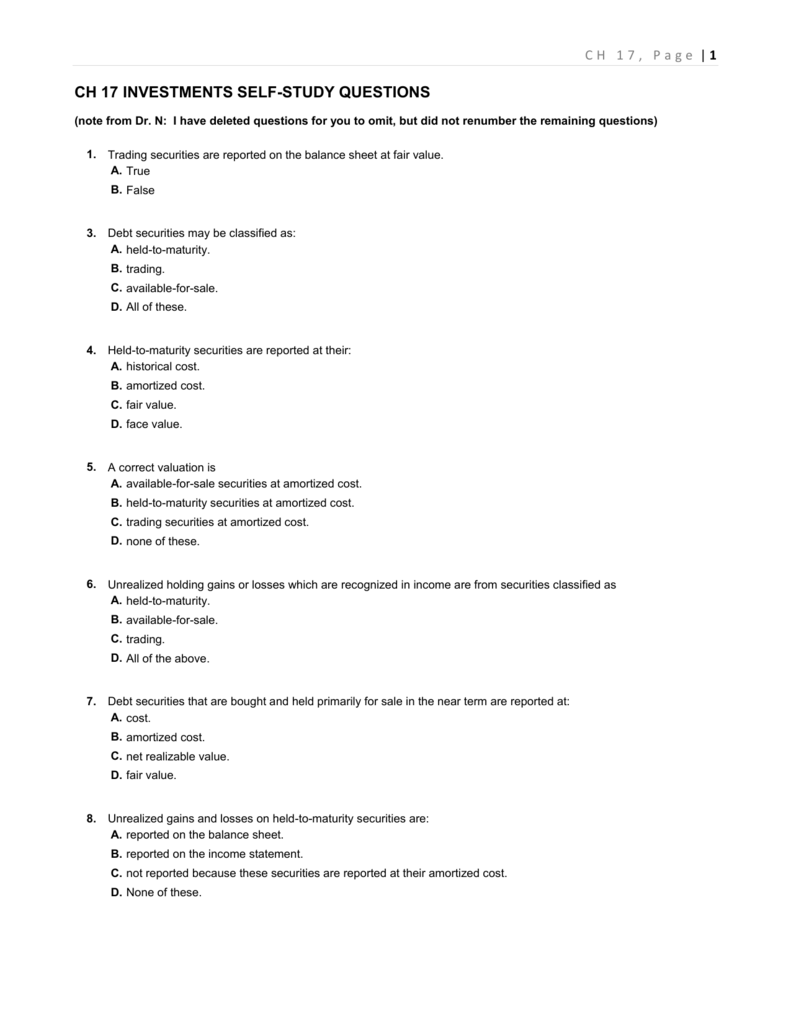

:max_bytes(150000):strip_icc()/GettyImages-182178688-1e402e44fa754098b843dfa37331a1e2.jpg)

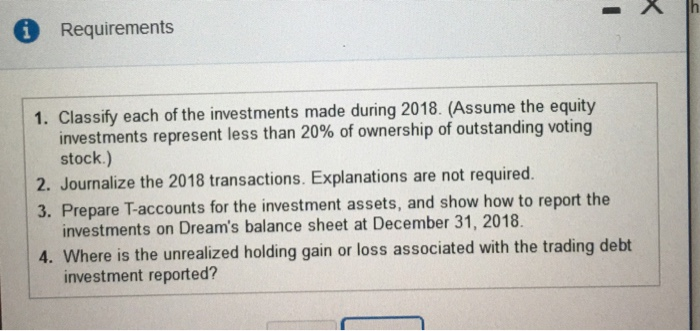


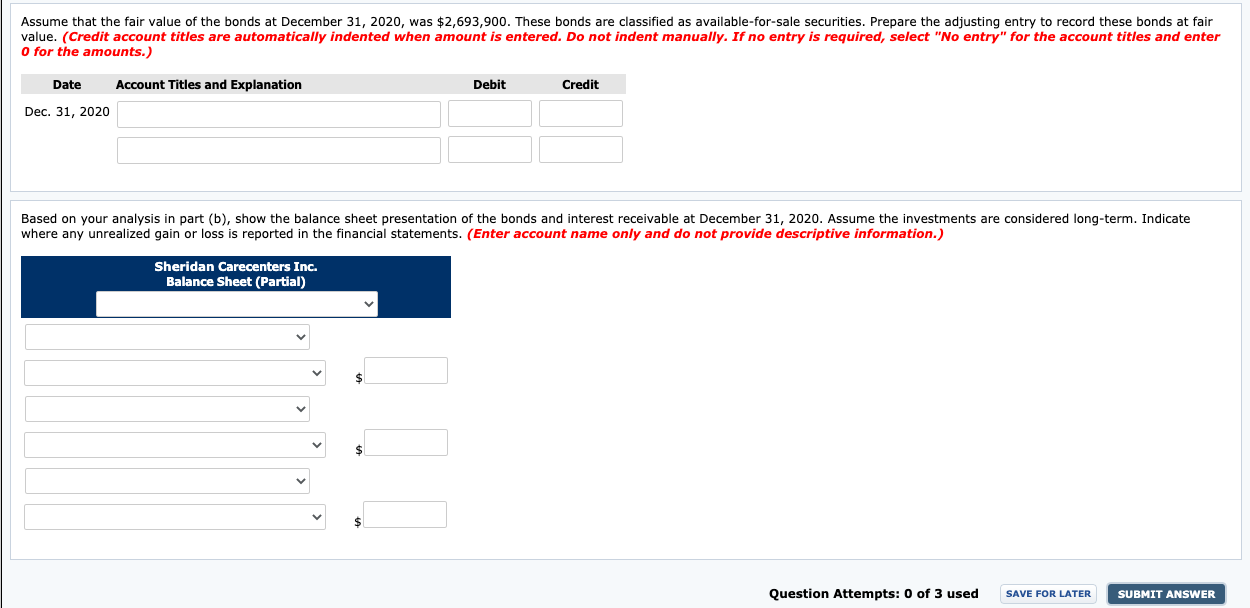

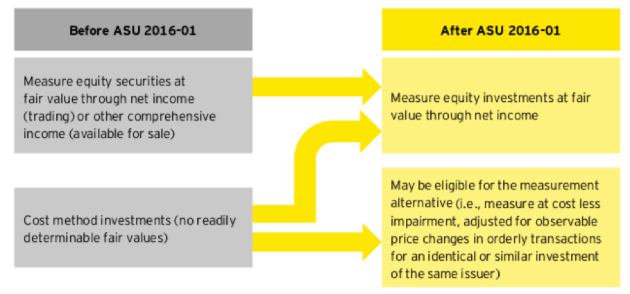




/GettyImages-1160370731-dc3828fe158945d2ba6ff4dd3092f240.jpg)


